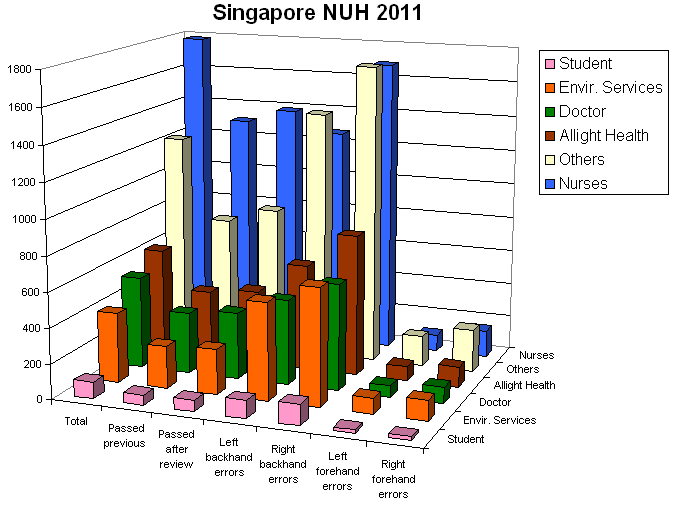Our results regarding the large-scale assessment at NUH Singapore in 2011 are published in the BMC Infectious Diseases scientific journal: “A large-scale assessment of hand hygiene quality and the effectiveness of the <<WHO 6-steps>>”.
Methods
A hand hygiene education and assessment program targeted 5200 clinical staff over 7 days at the National University Hospital, Singapore. Participants in small groups were guided by professional trainers through 5 educational stations, which included technique-training and UV light assessment supported by digital photography of hands. Objective criteria for satisfactory hand hygiene quality were defined a priori. The database of images created during the assessment program was analyzed subsequently. Patterns of poor hand hygiene quality were identified and linked to staff demographic.
Results
Despite the assessment taking place immediately after the training, only 72% of staff achieved satisfactory coverage. Failure to adequately clean the dorsal and palmar aspects of the hand occurred in 24% and 18% of the instances, respectively. Fingertips were missed by 3.5% of subjects. The analysis based on 4642 records showed that nurses performed best (77% pass), and women performed better than men (75% vs. 62%, p < 0.001). Further risk indicators have been identified regarding age and occupation.
This paper is freely accessible from the website.
